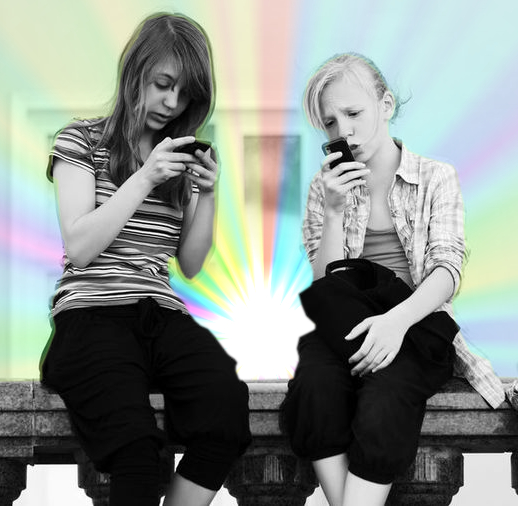Social media harms studied
 New research suggests frequent social media may be harming teen girls' mental health.
New research suggests frequent social media may be harming teen girls' mental health.
British scientists have found that very frequent use of social media could have negative consequences for teenage girls’ mental health.
The potential harm comes through exposure to cyberbullying as well as reducing the amount of sleep or physical exercise girls have.
“Our results suggest that social media itself doesn’t cause harm, but that frequent use may disrupt activities that have a positive impact on mental health such as sleeping and exercising, while increasing exposure of young people to harmful content, particularly the negative experience of cyber-bullying,” says Professor Russell Viner from the UCL Great Ormond Street Institute of Child Health, who led the research.
The British study tracked teens over three years, recording their frequency of social media use against a series of wellbeing surveys.
In both sexes, very frequent social media use was associated with greater psychological distress. In girls, the more often they accessed or checked social media, the greater their psychological distress. However, this effect was not as clear in boys.
After three years, the authors found that almost all of the effect on girls’ wellbeing was down to cyber-bullying, reduced sleep and reduced physical activity.
In contrast, cyberbullying, sleep and physical activity appeared to explain only 12 per cent of the impact of very frequent social media use on psychological distress in boys.
Writing in a linked Comment, Dr Ann DeSmet from Ghent University, Belgium, said: “These findings are important for at least two reasons”.
“First, social media use among youngsters need not be as negative as often assumed. If the displacement of healthy lifestyles and cyberbullying can be attenuated, the positive effects of social media use, such as encouraging social interactions, can be more endorsed.
“These findings showing nearly full mediation paths may also inspire researchers to investigate mediators of other media use that is generally considered harmful (e.g. gaming).
“Second, the joint associations of several lifestyles with mental health indicate the importance of multi-behavioural, whole-school programs to promote mental health in youth. This paper demonstrates sleep, cyberbullying and physical activity may be important lifestyles to target in protecting and improving youth mental health.”
The findings suggest that there are other mechanisms behind the effects of social media on boys’ mental health.
The authors suggest these influences are likely to be indirect, as they are for girls, rather than due to social media exposure per se, but further research is needed to reveal what these indirect influences might be.
“The clear sex differences we discovered could simply be attributed to girls accessing social media more frequently than boys, or to the fact that girls had higher levels of anxiety to begin with,” Dr Dasha Nicholls said.
“Cyberbullying may be more prevalent among girls, or it may be more closely associated with stress in girls than in boys.
“However, as other reports have also found clear sex differences, the results of our study make it all the more important to undertake further detailed studies of the mechanisms of social media effects by gender.”







 Print
Print